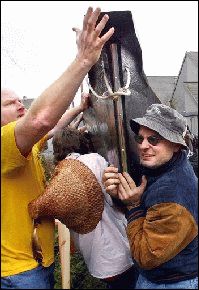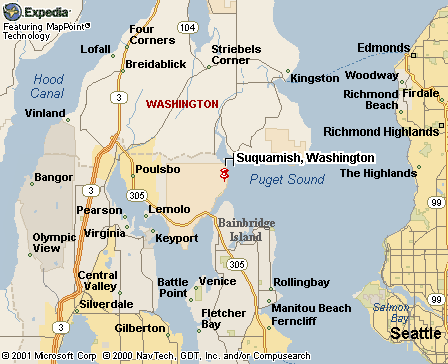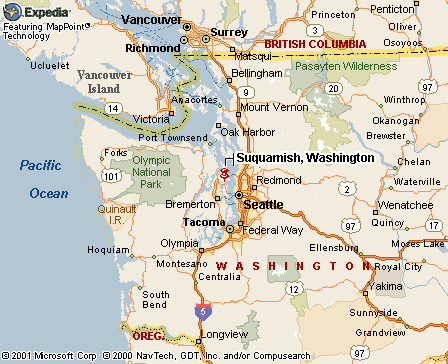|
|
Canku Ota |
|
|
(Many Paths) |
||
|
An Online Newsletter Celebrating Native America |
||
|
January 12, 2002 - Issue 53 |
||
|
|
||
|
Can-do Canoe: Carving an Identity With Work, Sacrifice |
||
|
by Christine Clarridge Seattle
Times staff reporter - January 6, 2002
|
||
|
credits: Alan
Berner/The Seattle Times
Tribe members and friends, including Suquamish Chief Judge Randal Steckel, left, and us-wuh-lee Zahir, Sioux and adopted Puyallup, right, strain as they help carry the 37-foot, 1,000-pound cedar canoe. |
|
Sweating, panting and beaming, the six young men and one woman were greeted by their community on shore with chants and songs, drums and solemn respect. The seagoing canoe, which was built by a group of six young men over three months, was the first in four generations to be hand-carved by a group of tribe members. The teens who volunteered to learn the honored craft of canoe-making swore off drugs, alcohol and tobacco in preparation for their apprenticeship. They lived in Vancouver, B.C., for three months last year while learning the craft under the watch of a master carver with the Squamish Nation. The 37-foot canoe, carved from half of an ancient cedar, was given a native name that sounds like SeeYAM StiWALTH and means well-respected, seagoing canoe. It's painted black on the outside and red on the inside. Yesterday, it was draped with a cedar wreath. "This is a great day," said tribal Chairman Bennie Armstrong at a blessing ceremony. "They are bringing our culture back to us." The blessing ceremony and feast at the tribal center was attended by several hundred members of the Suquamish Tribe and representatives from other local tribes. "All the tribes come here because we are still tied to the water," said Ray Fryberg Jr. of the Tulalip Tribes. It was also a culmination of nearly 12 years of work by tribal elders, committee members and educators to renew interest in the tribe's culture and traditions. Money from local, state and federal sources funded the project. "We've been trying to do this for a long, long time," said Chuck Wagner, who attended the ceremony. The young men who made the canoe say they are different than they were before. "I did some drugs and alcohol but this straightened me out," said Raymond Pondelick. "Culture and tradition are a much better high." "It was life-changing for them to do it," said Denise Comeaux of North Kitsap School District's work-based learning program. "But it was also life-changing for us to hear about it." This spring and summer, other members of the tribe will learn the art from the young men when the other half of the cedar tree is carved into a canoe. "They're going to show us how and we'll teach the next group," said Eric Pondelick, Raymond's brother. "And it will go on and on."
|
|
|
||
|
|
||
| Canku Ota is a free Newsletter celebrating Native America, its traditions and accomplishments . We do not provide subscriber or visitor names to anyone. Some articles presented in Canku Ota may contain copyright material. We have received appropriate permissions for republishing any articles. Material appearing here is distributed without profit or monetary gain to those who have expressed an interest. This is in accordance with Title 17 U.S.C. section 107. | ||
|
Canku Ota is a copyright © 2000, 2001, 2002 of Vicki Lockard and Paul Barry. |
||
|
|
|
|
|
The "Canku Ota - A Newsletter Celebrating Native America" web site and its design is the |
||
|
Copyright © 1999, 2000, 2001, 2002 of Paul C. Barry. |
||
|
All Rights Reserved. |
||

 SUQUAMISH
— The young tribe members who paddled the new and wood-hewn canoe
around a corner of Kitsap Peninsula to the dock at the Suquamish Tribal
Center were exhausted but proud when they got there.
SUQUAMISH
— The young tribe members who paddled the new and wood-hewn canoe
around a corner of Kitsap Peninsula to the dock at the Suquamish Tribal
Center were exhausted but proud when they got there.
